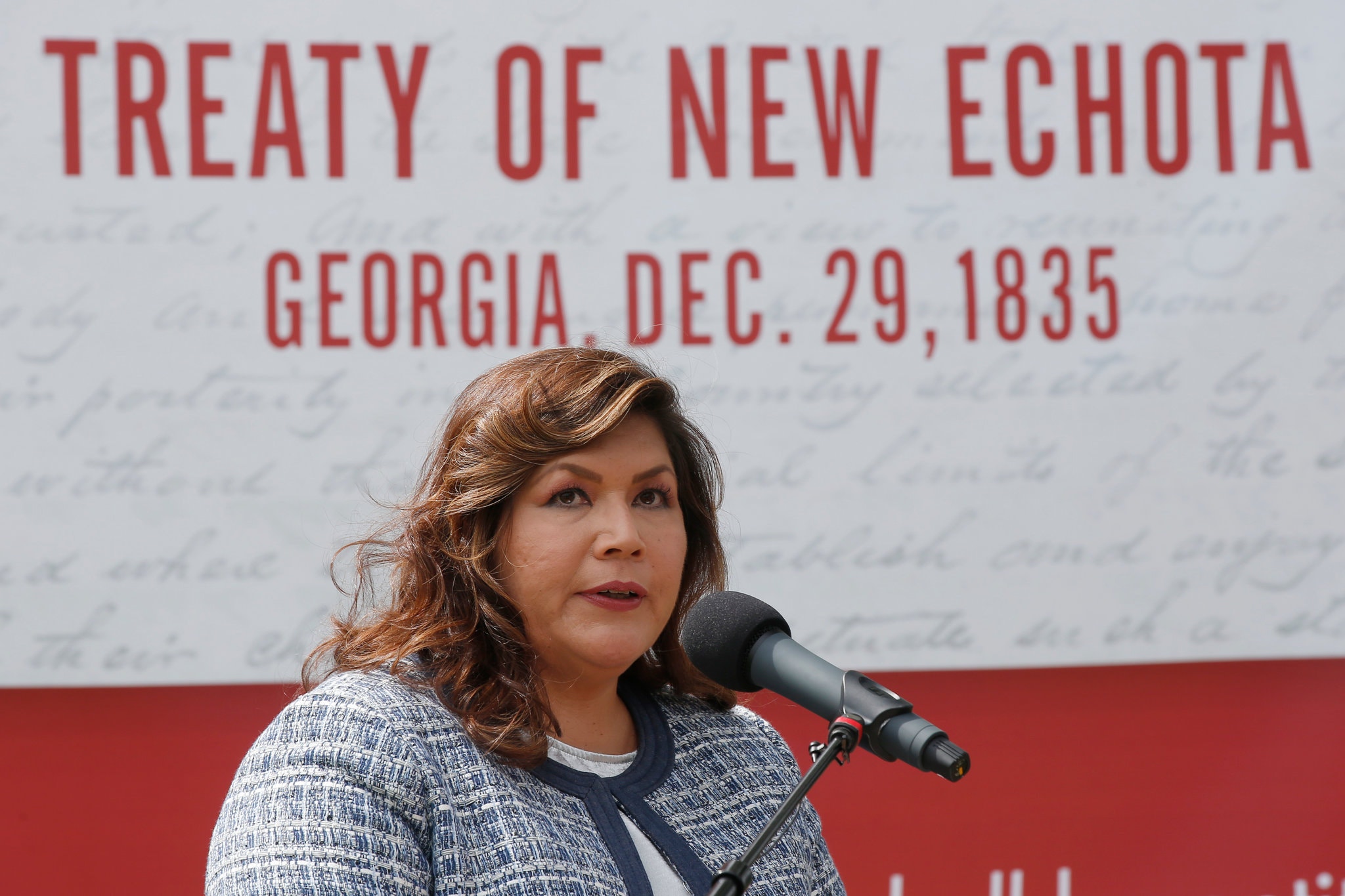By Jose A. Del Real—Aug. 27 2019
For Native American tribes, treaties with the United States government have often led to displacement, removal and outright erasure.
But now, the Cherokee Nation is turning to treaties signed in the 18th and 19th centuries to push for a delegate to Congress for the first time in history. The treaties, the Nation claims, promised them a seat at the table.
“These treaties are sacred. They mean something. There’s no expiration date on them,” said Chuck Hoskin Jr., chief of the Cherokee Nation, who last week announced he would fulfill a longstanding legal right to appoint a delegate to Congress. “What I’m asking is for the government of the United States to keep its word.”
Charles Gourd, 70, the director of the Cherokee National Historical Society, said he and others had wondered with incredulity why no Cherokee Nation delegate had ever been seated in Congress despite assurances to that effect. Mr. Hoskin’s renewed push, weeks after he was sworn in as the new chief, in part reflects how far the Cherokee have come in terms of governance, Mr. Gourd said.
“We’ve talked about it, yes, but we hadn’t done anything about it because there were other things that had to be done to get to this point,” said Mr. Gourd, who has studied Native American sovereignty. “In a real sense there was not a fully functioning government and there have been some growing pains. I think this is a measure of the maturity of our tribal government.”
Settled in northeastern Oklahoma after the Trail of Tears, the Cherokee Nation today has nearly 400,000 enrolled members, making it the largest of nearly 600 federally recognized Native American tribes. There are also two significantly smaller, independent Cherokee tribes recognized by the federal government that are based in Oklahoma and North Carolina.
Their effort to seat a delegate in Congress — albeit, a nonvoting member — comes amid a broader push for visibility and political representation among Native Americans. In November, the Democrats Deb Haaland (Pueblo of Laguna) of New Mexico and Sharice Davids (Ho-Chunk Nation) of Kansas became the first Native American women elected to Congress. Congress now has four Native American members, including Tom Cole (Chickasaw Nation) and Markwayne Mullin (Cherokee Nation), both Republicans of Oklahoma.
The right for the Cherokee to send a “deputy” to represent them in the United States Congress was first codified in the Treaty of Hopewell of 1785, which defined Cherokee borders and promised certain protections in return. The right to send a “delegate” specifically to the House of Representatives was affirmed in the 1835 Treaty of New Echota — which is better remembered for being the legal basis for the Trail of Tears, which removed Native Americans from their homelands.
The House of Representatives already has several nonvoting delegates. They represent Puerto Rico, the District of Columbia, Guam, American Samoa, the Northern Mariana Islands and the United States Virgin Islands.
But there has never been a delegate representing a sovereign Native American government.
It remains to be seen how the plan will be greeted by congressional leaders.
Read more at the New York Times.




